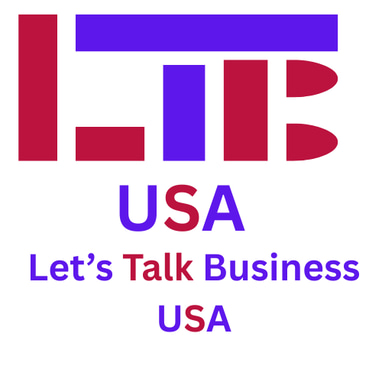Small Business Administration - SBA 7(a) Loans
FINANCE

The SBA's 7(a) program is the most popular program offered by the U.S. Small Business Administration (SBA) because it offers a variety of options for a variety of purposes. However, the requirements are quite strict.
Small Business Adsministration - SBA 7(a) Loans
SBA loans are made to small businesses and are processed by private banks with the support of the U.S. Small Business Administration.
The SBA is an organization created by the U.S. Cabinet in 1953, dedicated exclusively to providing American small businesses with advice, capital, and other resources to "drive change and promote action so that small businesses can start, grow, expand, or recover with confidence."
The U.S. government, through the SBA, guarantees a portion of the loan in case the company is unable to repay it.
A large number of small businesses seek access to these loans, as both the interest rates and repayment terms are highly competitive. According to its own statistics, the SBA had approved more than 46,431 7(a) loans by March 2025, valued at over $20.2 billion.
What is a SBA 7(a) Loan
An SBA 7(a) loan is a loan provided to small businesses as part of the SBA Loan Program. It offers seven different financing options, depending on the purpose of the loan.
It is the most common loan granted by the SBA, given its flexibility, allowing it to be used for multiple purposes, such as short- or long-term working capital, refinancing pre-existing business debt, purchasing new machinery and equipment, acquiring supplies, and other purposes that contribute to improving small business operations.
Types of SBA 7(a) Loans
Depending on the business financing purpose, the 7(a) loan offers several financing options:
•Standard SBA 7(a)Loan: It offers a maximum amount of $5 Million and can be used for short and long-term working capital, refinancing of existing commercial debts, purchase of new machinery and equipment, acquisition of supplies and some other purposes that contribute to improving the business operations of the company.
• SBA 7(a) Small Loan: Offers a maximum loan amount of $500,000, with a maximum guarantee of 85% for loans up to $150,000 and 75% for larger loans. It can be used for small projects and financial needs.
• Express Loan : Maximum amount $500,000, with a maximum guarantee of 50% and is used for urgent needs.
• Export Express Loan: Maximum amount $500,000, with a maximum guarantee of 90% for loans up to $350,000 and 75% for larger amounts. It can be used for urgent needs in order to develop exports.
• Export Working Capital Loan: Maximum amount $5 Million, with a maximum guarantee of 90% and can be used for working capital for export sales.
• International Trade Loan: Maximum amount of $5 Million with a maximum guarantee of 90% can be used for long-term financing of export sales that compete with foreign companies.
• CAP Lines: Maximum amount $5 million with a maximum guarantee of 85% for loans up to $150,000 and 75% for larger loans and can be used for short-term and seasonal needs.
sBA7(a) Standard Loan conditions
The SBA guarantees up to 75% of the loan amount and may require collateral for the remaining amount, using both the company's existing assets and any assets acquired or improved as a result of the loan.
The loan is considered fully secured when the assets used equal the amount borrowed.
Both lenders and borrowers are free to negotiate loan terms and interest rates, but the rate cannot exceed the maximum established by the SBA.
For other categories of 7(a) loans, such as the 7(a) Small Loan or the 7(a) Loan, collateral may not be required if the amount does not exceed $500,000.
For larger amounts, the lender's policies generally apply to determining the amount of collateral required.
Requirements for SBA 7(a) Loans
According to the SBA, businesses applying for 7(a) loans must meet the following requirements:
• Operate for a profit
• Must comply with the SBA Small Business Definition
• Operate in the US or it's territories
• Demonstrate the need for the loan
• Demonstrate that the funds will support a solid business
• Be current with any obligations with the US Government
• Being trustworthy and have the financial capability of repaying the loan
• Must have been rejected by other traditional lenders
SBA lenders also typically set their own criteria for minimum tenure, credit score, and annual revenue. These are often quite strict, such as requiring a minimum amount of time in business.
Applicants require a solid personal credit score of 670 or higher, although some lenders may accept a lower score, around 630.
How to apply for a SBA 7(a) Loan
The application must be made through an SBA-approved lender.
Many commercial banks and credit unions offer this type of loan, so it's recommended to start by applying at the bank where the company manages its accounts.
The company must submit financial documentation proving it can repay the loan.
These are the requirements:
1.- Select the lender
The SBA offers an online tool that helps connect businesses with potential lenders to help select the most suitable lender and increase the chances of obtaining loan approval.
Some lenders also participate in the SBA's Preferred Lender Program, which certifies that they can process loans more efficiently, significantly speeding up the approval process.
Chase, Bank of America, and Huntington National Bank participate in this program.
2.- How to apply
Once you've selected a lender, you'll need to gather the necessary documents and complete the corresponding application. Your lender will help you submit the necessary forms, but the following documents are generally required:
• SBA 1920 Form
• SBA1919 Form - Company Information
• FSBA 413 Form- Personal Financial Statements
• Financial Statements: Balance Sheet, P & L
• Proyected Financials
• Commercial License
• Previous Loan applications
•IRS Tax Returns
• Each owner's personal information
• Business brief and history
• Commercial Lease agreement
In general, it's advisable to submit a Business Plan along with the company's forms and financial statements. The Business Plan describes the company's growth strategy and how it plans to use financing.
3.- Waiting time
The SBA indicates that the approval time should typically be between 5 and 10 business days, but any missing documentation, application errors, and other loan requirements can delay the process.
Average time is between 30 and 90 days.
Summary
The SBA's 7(a) program is the most popular program offered by the U.S. Small Business Administration (SBA) as it offers a variety of options for a variety of purposes. However, the requirements set by both the SBA and the lender are quite strict.
The SBA sets interest rate limits and offers longer repayment terms, making these loans a very attractive solution for small businesses.
